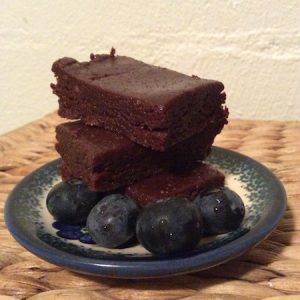Beta-carotene is a type of carotenoid (carotenoids make up the group of bright yellow, orange and red pigments that you find in fruit, vegetables and some animal products, such as salmon & egg yolk)1. In the body, beta-carotene functions as an antioxidant and as a precursor to vitamin A, which is essential for reproduction, immunity, epithelial and mucosal integrity and of course vision2.
Observational studies have suggested that nutrients such as beta-carotene may help with age-related eye disease, for example age-related macular degeneration and vision loss3.
There is currently no RDI for beta-carotene in Australia, however when following the recommended five or more servings of fruit and vegetables per day you will be consuming approximately 3-6mg1 Beta-carotene can be found in sweet potato (see recipe above), carrots, pumpkin, red capsicum, spinach and rockmelon as well as many more3. To optimise absorption of beta-carotene it should be eaten with meals containing fats.
It is always important to obtain nutrients through your diet rather than supplementing unless it is absolutely necessary. Supplements should never replace a well balanced diet. Vitamin A can be toxic in high doses and you should consult your health care practitioner if planning to supplement and should be avoided during pregnancy. Long-term supplementation of vitamin A may lead to increased risk of birth defects and abnormal liver function.
References
- Braun, L & Cohen, M 2015, Herbs & Natural Supplements: An evidence-based guide, 4th edn, vol. 2, Elsevier Australia, Chatswood
- Pizzorno, J. E, Murray, M. T & Joiner-Bey, H 2008, The Clinician’s Handbook of Natural Medicine, 2 nd edn, Elsevier Australia, Chatswood
- Rasmussen, H & Johnson, E 2013, Nutrients for the aging eye,Clinical Interventions in Aging, vol. 8, accessed 9 March 2019, <https://www.ncbi.nlm.nih.gov/pmc/articles/PMC3693724/>
Author Shelley Atkinson (Dip. Nutrition)


